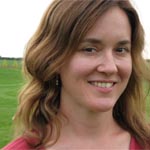The Rabbi said, “This is a book for freaks and outcasts.” He hadn’t read it, of course…
Ten years ago, I published a memoir that enraged a famous Rabbi because it legitimized the personal quest for spirit. On the public television panel, the Rabbi said, “This is a book for freaks and outcasts.” He hadn’t read it, of course. And back then, I didn’t understand his fear of my earnest, twenty-something search for a divine life. But I do now. He was threatened. He didn’t believe in my line of inquiry: Could sacred experiences really replace my religion? Could chasing the sacred really be more fulfilling than religion? He didn’t believe that leaving the shell of religion—any religion—for a life in the unknown was a good idea. He didn’t understand that for me, and others, asking these types of questions is absolutely essential to happiness.
A decade later, the process of self-inquiry is a celebrated practice by millions of individuals. In fact, it is practically a religion itself. I count not only the lapsed Judeo-Christians like myself who sought meditation and yoga for a more personal experience of self. But women and men who question whether parenthood is truly right for them, and heterosexuals who question whether gender is so simply defined as that, and progressive business owners who wonder if the dollar is really the only bottom line. Thanks in part to higher education and a powerful media, self-inquiry for the average person has become part of the culture. Most recently it has stirred Americans to question whether or not they truly believe in freedom of religion. The fury displayed by the conservative pastor in Gainsboro, Florida over the negative influence of the Koran, for example, reminds me of the fury in the wrinkled face of that Rabbi on the panel discussion. Both were threatened by a different characterization of the divine. Both feared that someone else’s freedom meant losing their own.
In both cases, I like to think the Rabbi and the Florida pastor could have quieted their fears if they had engaged in self- inquiry.
Some questions I would recommend:
Do I believe in my own goodness? Do I believe in the essential goodness of others? What frightens me? What do I not understand? And why? How can I be my most authentic self? How can I inspire others to seek their own authenticity, whatever that may be?
I learned to ask these questions when I studied some of the world’s oldest spiritual systems. Yogis, Vodou priestesses, American Sufis, Meditators and Shamanic Practitioners all understand that questions and answers are what keep them connected to spirit. They understand that dialogue—especially inner dialogue—sparks insight and truth and, often, change.
I won’t kid myself into thinking that self-inquiry can solve the world’s political, social and religious problems. But it is an approach to solving personal problems, and that’s a start. If you’re brave enough to engage in self-inquiry, you may end up somewhere you never expected. And that’s exactly the point.
Suzanne Clores is celebrating the 10th anniversary of her book, Memoirs of a Spiritual Outsider, now available on Kindle.

 Share on bsky
Share on bsky






Read 13 comments and reply